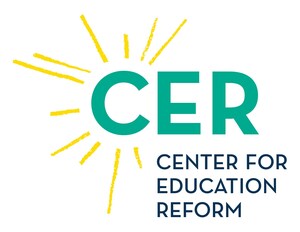Statement by Jeanne Allen, Founder & CEO, Center for Education Reform on the impending official release of the Trump Administration's Fiscal Year 2018 Budget for the US Department of Education
WASHINGTON, May 23, 2017 /PRNewswire-USNewswire/ -- Much more can and will be said about the Administration's proposed budget. For now, we should use it to open a national dialogue about how we educate, not how much we spend.
The president's budget is neither offensive nor unfair. It contains some recognition that the federal government's efforts should follow state and local efforts and not further federal programs that fail to advance or transform learning.
The real question today, and always, should be: 'How does federal spending better enable and advance critical educational opportunities for students?'
Do programs support the many state and local approaches to fueling improved teaching and learning, or do they exist merely for their own sake, independent of state action, born of, and protected by, interest groups?
Throughout the nation, at all levels, policymakers, parents, teachers and innovators are leading critical new endeavors to focus on student achievement, some by using new technologies in the classroom, some by implementing new schools of choice, some through boosting the traditional activities of districts.
Federal funding should support these efforts, not sustain or increase previously sanctioned programs that do not follow the needs of communities.
Federal education programs for primary and secondary grades represent only a fraction of total K-12 and supplemental spending – funding programs that, over time, have had mixed reviews. Those who gain from those programs always argue that the funds are "necessary" regardless of their effectiveness.
Despite nearly forty years of effort by the US Department of Education, we remain A Nation at Risk. Our students are woefully unprepared for modern day challenges locally and globally, in large measure because we persist in funding programs and not students and where and how they learn best.
Instead of focusing on budgetary line items, we should be working to redefine Washington's role in creating paths that lead to education innovation and in carving out opportunities to match each student's needs with the institutions or learning environments that best suit them.
The most important work for this Administration and Congress isn't the education budget, it's how those funds are permitted to be spent. In that regard, the effort by Secretary DeVos to review and remove unnecessary federal regulations, programs and spending can be transformative. Abolishing regulations and non-regulatory guidance will free up funds, reorient efforts, and behaviors—for the better. The most important topic on this issue for lawmakers must be how the entire federal budget might expand opportunities for students, wherever and however they learn.
Founded in 1993, the Center for Education Reform aims to expand educational opportunities that lead to improved economic outcomes for all Americans — particularly our youth — ensuring that conditions are ripe for innovation, freedom and flexibility throughout U.S. education.
edreform.com | @edreform
SOURCE Center for Education Reform
WANT YOUR COMPANY'S NEWS FEATURED ON PRNEWSWIRE.COM?
Newsrooms &
Influencers
Digital Media
Outlets
Journalists
Opted In




Share this article